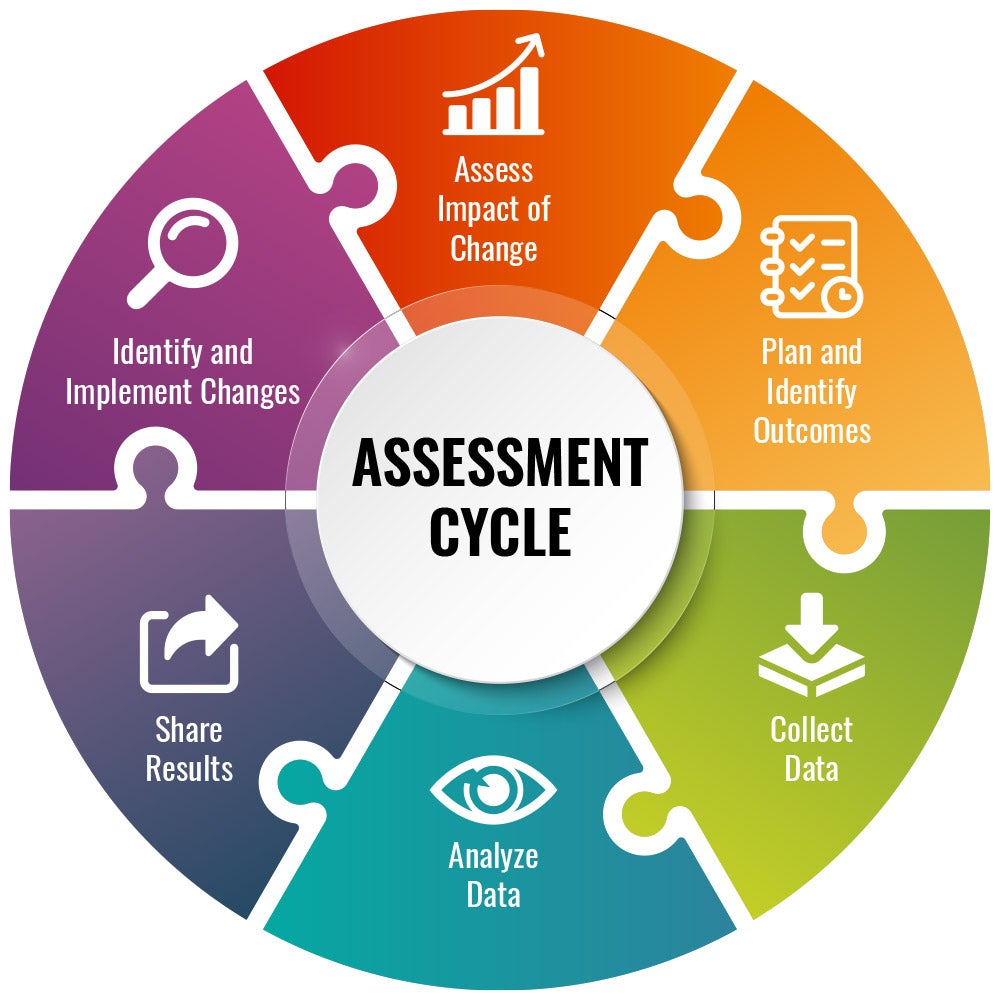
Assessment
“At its core, equitable assessment calls for those who lead and participate in assessment activities to pay attention and be conscious of how assessment can either feed into cycles that perpetuate inequities or can serve to bring more equity into higher education”
-
Equity-Minded Assessment
Student Affairs Assessment & Research strives to conduct equity-minded assessments and build a culture of assessment in Student Affairs that values diversity, equity, and inclusion to uplift the voices of historically marginalized groups.
Assessment and research can often have unintentional biases when not being aware of participants’ backgrounds, identities, hardships, and points of view, as well as the personal privileges and backgrounds of the researcher or assessment professional. According to the National Institute for Learning Outcomes Assessment (NILOA), "For assessment to improve student learning and authentically document what students know and can do for today’s diverse students, an equitable and culturally responsive approach to assessment is needed." Equity-minded assessment, which is sometimes referred to as equity-centered or socially just assessment, is a framework to eliminate bias and injustices in assessment. NILOA developed the following six guiding principles in equity-minded assessment.
Best practices in equity-minded assessment include the following actions:
- Check biases and ask reflective questions throughout the assessment process to address assumptions and positions of privilege.
- Use multiple sources of evidence appropriate for the students being assessed and assessment effort.
- Include student perspectives and take action based on perspectives.
- Increase transparency in assessment results and actions taken.
- Ensure collected data can be meaningfully disaggregated and interrogated.
- Make evidence-based changes that address issues of equity that are context-specific
Sources:
- Montenegro, E., & Jankowski, N. A. (2020, January). A new decade for assessment: Embedding equity into assessment praxis (Occasional Paper No. 42). Urbana, IL: University of Illinois and Indiana University, National Institute for Learning Outcomes Assessment (NILOA).
- National Institute for Learning Outcomes Assessment. Equity in Assessment
-
Assessment Cycle
Assessment is a cyclical process. Results from one step of the process help guide the next step. While all steps are important, the process of “closing the loop” by implementing changes and then assessing the impact of those changes is imperative in the assessment cycle.
-
Plan & Identify Outcomes
- Identify clear, measurable, specific outcomes that relate to the goals and objectives of the assessed program/service.
-
Collect Data
-
Collect data from the participants of the program/service that directly correlates to the goals and objectives.
-
-
Analyze Data
-
Analyze data to identify where the program/service needs to change to meet goals and objectives.
-
-
Share Results
-
Share the results with the necessary campus and community stakeholders.
-
-
Identify & Implement Changes
-
Identify changes that are necessary to help the program/service meet its desired outcomes that were identified in step one of the assessment cycle.
-
-
Assess Impact of Change
-
The goal for assessment is continuous improvement. Changes should be made based on the assessment process. After changes have been implemented, the assessment cycle should begin again to assess the impact of those changes.
-
-
-
Student Affairs Annual Assessment Reports
Student Affairs Annual Assessment Reports
Department Resources for Completing Annual Assessment Reports
-
Best Practice Examples in Student Affairs Assessment at UCR
Best Practice Examples in Student Affairs Assessment at UCR
Student Affairs Assessment & Research recognizes departments with outstanding assessment reports as “Best Practice Examples in Student Affairs Assessment.” These reports are shared to highlight departments with excellent assessment practices, as well as to serve as a reference for other Student Affairs departments when completing annual assessment reports in the future, creating their own assessments, and to learn about some of the high quality assessments being done at UCR.
2023-2024
2022-2023
-
Assessment Presentations
2023-2024
- Equity-Minded Assessment (Directors Retreat 2023)
- Learning Outcomes & Assessment Wrap-Up (Directors Retreat 2023)
2022-2023
2021-2022
2020-2021
2019-2020
-
Assessment Resources
UCR Student Affairs Assessment
Student Learning Outcomes
- Student Learning Outcomes Exercise: ABCD Method
- Bloom’s Taxonomy Lightbulb
- Bloom’s Taxonomy Action Verbs
- Bloom's Taxonomy - Vanderbilt University Center for Teaching
Program Evaluation & Survey Design
- Student Affairs Program Evaluation Template (PDF)
- Student Affairs Program Evaluation Template (Qualtrics)
- Guide to Collecting Race/Ethnicity Data with IPEDS
- Guidelines for Gender and Sexual Orientation Survey Questions
Equity-Minded Assessment
UC Assessment Resources
- UCR Institutional Research
- UCR Office of Evaluation & Assessment
- University of California Institutional Research and Academic Planning
- University of California Information Center
For questions about assessment and research in Student Affairs, please contact Luis Alvarez at luis.alvarez@ucr.edu.
You Belong at UCR
All programs, services, and events offered through Student Affairs are open to everyone, consistent with federal and state law and the University of California’s nondiscrimination policies. Whether you’re seeking support, joining a community, or participating in campus life, every effort is made to ensure your experience is inclusive, respectful, and accessible, regardless of background or identity.
To learn more, visit the UC Nondiscrimination Statement or the Nondiscrimination Policy Statement for University of California Publications Regarding Student-Related Matters.
